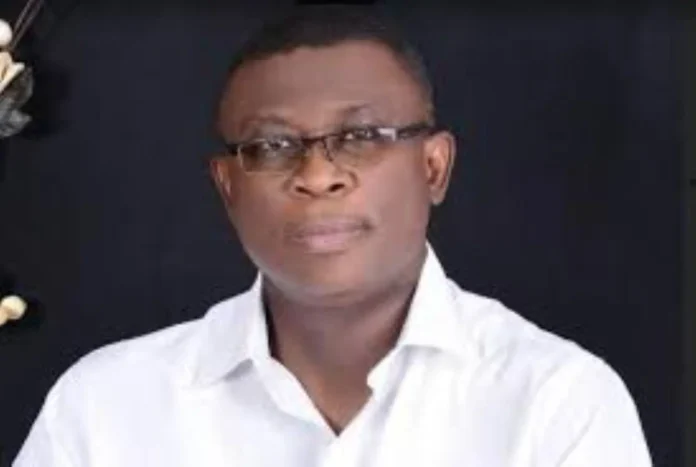By Francis Ewherido
Recently, the Minister of Education, Dr Tunji Alausa, made a statement, which, as far as I am concerned, is a dirge for indigenous languages in Nigeria. He said that the Federal Government of Nigeria has cancelled the national policy mandating the use of indigenous languages as the medium of instruction in primary schools. Dr. Alausa added that English was now the language of instruction in Nigerian schools from primary to tertiary levels.
The reason for the volte face, according to the minister, is that Nigerian children have been performing abysmally in public examinations as a result of being taught in their mother tongues. He added that the decision to cancel the policy followed extensive data analysis and evidence showing that the use of mother tongue as the main medium of instruction had negatively affected learning outcomes in several parts of the country.
The minister urged stakeholders with differing views to present verifiable data to support their positions. Hon. Minister, I differ but I don’t have empirical data to counter your argument. But I have evidence. I will speak from my personal experience. I started my primary education at St. Paul Primary School, Ughelli, Midwest Region (now Delta State). The medium of instruction was Urhobo (Ughelli Dialect). English was just a subject. By 1973, following the transfer of my father to Ozoro, in Isoko, also in Delta State, I switched to Ekwerigbe Primary School, Ozoro. The medium of instruction was Isoko (Ozoro Dialect). English was also just a subject.
It was in secondary school that English became a medium of instruction. It was tough for many students, but the problem was not being taught in our native language in primary school. The Midwest Region, later Bendel State and now Delta State and Edo State, was and is still a multi-ethnic state. The common means of communication was Pidgin English. Learning to speak English was a problem to some students, but I was lucky because my father was an English teacher and took time to teach us (my siblings and I) English as a subject, not a medium of communication, at home. My mother prohibited the speaking of English at home. Our language of communication was Urhobo (Ewhu dialect).
Thanks to my mother, I speak Ewhu (Ewu) dialect fluently as if I grew up in Ewu. But to the glory of God, I still speak Urhobo (Ughelli dialect) and Isoko (Ozoro dialect) fluently. This is something that gives a lot of joy and satisfaction. It is this same joy and satisfaction this new policy will deny this generation and those unborn. Incidentally, one of my maternal great grandmothers is from Enwhe in Isoko. So, I communicate with my Enwhe relatives in Isoko, Ozoro Dialect.
Hon. Minister, it might interest you to know that all my brothers had no problem getting credit or distinction in English. In fact, I deliberately decided not to answer all the questions in English when I wrote my West Africa School Certificate (WASC) because I was scared that my result might be withheld. I was anxious to get into the university. Even at that, I got an A2 or A3. But I was taught in Urhobo and Isoko in primary school; we spoke only Urhobo at home, and we communicated in Pidgin English in secondary school, unless a teacher was around!
This government new policy doesn’t make sense to me. Language is an essential part of our culture. If you look at research findings and statistics, all the indigenous languages in Nigeria are dying. They are suffering from serious desertification. Fewer people are speaking them and the vocabulary is shrinking. The proverbs and wise sayings with their connotative meanings are disappearing gradually. The only language that’s seemingly intact in Nigeria right now is Hausa.
I told my children to learn how to speak Yoruba in school, since all the places where we have lived and currently live in Lagos are mini-Nigeria, but only one of them can speak Yoruba. The others said even their Yoruba friends can’t speak Yoruba. Some Igbos are crying that their language is dying. Some Northern ethnic minorities cried out recently that the Hausa language has overshadowed and their indigenous languages and their children can’t speak their indigenous languages anymore. Thank God that it’s even an indigenous language that’s taking over. But they are not crying because they have a problem with the Hausa language. They are crying because their language is an essential part of their culture and identity.
Delta State is in a terrible situation. Many Urhobo, Itsekiri and Ijaw people who grew up in Warri City can’t speak their indigenous languages fluently. The problem has been there since the 70s, if not 60s. Since the three major ethnic groups that live in Warri have different languages, they devised a way to communicate and interact. The solution was Pidgin English. The only advantage now is that Warri is number one in Pidgin English in Nigeria. Warri Pidgin is very musical and lyrical. None other compares. And they manufacture new terminologies per second. I am currently not up to date. In the 80s, if you hear “eke dey come, gas,” it meant “the police are coming, run.” “Dem nor dey threaten kpons with rod,” meant “you cannot intimidate an old prostitute with your monster penis.” What has she not seen before? The new terminologies just go on and on.
Right now, in Urhobo land and Isoko land, Pidgin English has taken over our rural areas. It’s their way of saying, “I belong.” “I’m a correct guy.” “I’m a happening babe.” Inferiority complex and feeling inadequate have crept in. It’s very sad. Even old people in the villages are not left out. Our indigenous languages are endangered. It’s saddening. Ironically, one of the things I intend to do over the next decade is to study Urhobo and Isoko further. I am putting together books I will read. I am going to collect and listen to old Urhobo and Isoko music. I also want to get tapes on Isoko and listen to them to improve my spoken Isoko. We left Ozoro in January 1980. My Isoko has suffered serious desert encroachment since then. I intend to regain what was lost and know more. I see some of my older friends in their late 60s and 70s going back to their roots and I am following suit. That’s where we all belong. Moreover, if I can’t study new languages in my 60s, let me hold on jealously to the languages of my childhood and ancestors.
Yet the government is introducing a policy that is a dirge for the burial of our indigenous languages. I was happy in 2022, when the federal government approved the National Language Policy (NLP), which provided for instruction of pupils in indigenous languages for early child care education to primary six. The National Language Policy (NLP), developed by the National Educational Research and Development Council (NERDC) under the auspices of the Federal Ministry of Education (FME) was adopted in by the Federal Executive Council in November 2022. The policy sought to promote indigenous languages, recognise their equal status, and improve early childhood learning outcomes, while English remains the official language used in further education and formal settings. Within three years, there is a policy summersault. This is retrogressive.
In India, a country that was colonised by the British like Nigeria, there are 22 recognised official languages, but Hindi is the most widely spoken language, not English. Other major spoken languages are Bengali, Marathi, Telugu and Tamil. I stayed for while in Mumbai. The two major languages are Marathi and Hindi. In Chennai, the other city where I stayed, the major language is Tamil. I really loved it. Most Indians are not fluent in English. In fact, a guide told me that English is just a course in many Indian schools, while some schools use English as the medium of communication. States, regions, etc., are allowed to have their own official language. India is deeply cultural in language fashion, architecture, etc., as if it was never colonised by the British.
In 1980, India was almost at par with Nigeria in many aspects, but India is way ahead of Nigeria today in technology, medicine, military, economy, other development indices, etc. Yet most Indians communicate mainly in their indigenous languages in offices, markets, hospitals and other public places. We can learn a few things from them. For me, we can use English as our official means of communication nationwide, while regions and states should be allowed to promote our indigenous languages. It is an essential part of our culture. It must not be allowed to suffer further desertification until no tree is left. In other words, we face the existential threat of the extinct of our indigenous languages. The dangers are clear and present.
ENSURING FREE TRAFFIC FLOW IN DECEMBER
The traffic gridlock in Lagos, especially in the Lagos Island and Lekki axis, during the Christmas season can be very frustrating. With Detty December around the corner, it will even be more nightmarish. Suspending the wholesale rehabilitation of the Lekki Expressway is a good move, but the Lagos State Government needs to sort out whatever is impeding the use of the coastal road as it earlier promised. This will make life easier for Lagosians and visitors on that axis. Honestly, the coastal road looks heavenly compared to the Lekki Road at least for now.






















